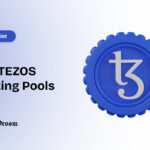As decentralized finance (DeFi) continues to grow, the blockchain ecosystem has become increasingly fragmented. Different blockchains offer unique functionalities, but this isolation creates challenges for users and developers. Thus, making it harder to manage assets, access liquidity and build scalable solutions across multiple networks.
- 1. Simplifies User Experience
- 2. Enables Universal Liquidity Across Blockchains
- 3. Supports Multi-Chain Asset Transfers and Token Swaps
- 4. Enhances Security Through Decentralization
- 5. Unlocks New DeFi Use Cases
- 6. Reduces Liquidity Fragmentation in DeFi Ecosystems
- 7. Increases Adoption of Web3 Technology
- 8. Strengthens Partnerships and Collaboration
- 9. Efficient Risk Management Across Blockchains
- 10. Promotes a More Inclusive DeFi Ecosystem
- Conclusion
Here’s where cross-chain interoperability comes in. It offers a solution by allowing different blockchains to communicate and interact, enabling smoother asset transfers, improved liquidity and more innovative DeFi applications. This approach also eliminates the need for centralized exchanges and intermediaries. Hence, reducing friction and empowering users to manage assets across ecosystems directly.
Elys Network, a forward-thinking Layer-1 app chain, is leading the charge in promoting cross-chain interoperability. By connecting isolated blockchain ecosystems, Elys simplifies user experience and defragments the liquidity gaps in the ecosystem.
In this blog, we’ll explore 10 key reasons why cross-chain interoperability is critical for the future of DeFi and how Elys Network is at the forefront of driving this transformation.
1. Simplifies User Experience
Blockchain technology is often hard for new users to grasp. Managing multiple wallets, networks and platforms can be confusing. Protocols using cross-chain interoperability simplify this by providing a single experience.
Users no longer need to interact with each blockchain separately. Instead, they can access multiple networks through a single platform, making the entire process easier.
Elys Network is a Layer-1 app chain designed to make blockchain integration effortless within the decentralized ecosystem. Its mission is to simplify decentralized finance (DeFi) and offer a user experience that mimics centralized exchanges (CEXs).
The network also equips users with the required tools to confidently navigate the decentralized world with a blend of security, autonomy and ease of use. This is appealing to both beginners and experienced users.

Elys Network provides the best and most simplified user experience by –
- Integrating multiple blockchains into a single user interface.
- Using cross-chain bridges and smart contracts to allow seamless asset management.
- Reducing the need for users to switch between wallets and platforms.
Additionally, Elys’ focus on an easy-to-use design ensures even non-technical users can participate in DeFi activities. Doing this Ely’s is lowering the entry barrier which helps drive mass adoption of blockchain technology.
2. Enables Universal Liquidity Across Blockchains
Liquidity in DeFi is often split across chains. This limits access to assets. Cross-chain interoperability connects different liquidity pools, allowing for smoother trading. This results in better price discovery and lower transaction costs for users.
Elys Network achieves this through its cross-chain liquidity infrastructure. Elys uses decentralized bridges that allow assets to flow between blockchains. And, thanks to the Inter-Blockchain Communication (IBC) protocol , asset transfers between blockchains are quicker and more secure than ever before.
These asset transfers help provide users with access to a wider range of liquidity pools from the entire DeFi ecosystem. This allows for larger trades without major slippage, improving the trading experience for users across different DeFi platforms.
Also, Elys’ universal liquidity model reduces the need for users to move assets manually between chains. This decreases the risk of liquidity being locked in isolated ecosystems and increases the overall capital efficiency of the DeFi ecosystem. Traders and liquidity providers benefit from a more efficient system.
3. Supports Multi-Chain Asset Transfers and Token Swaps
Moving assets across different blockchain networks is often a slow process. Users typically need to rely on centralized exchanges or complex, manual procedures to transfer tokens between blockchains. Cross-chain interoperability allows for seamless asset transfers, enabling users to move tokens, NFTs, or other assets between different blockchains without relying on third parties.
Elys Network supports multi-chain transfers by using native cross-chain bridges for smooth and secure asset transfers.

Leveraging smart contracts users can also execute decentralized, trustless swaps between blockchains.
In addition to offering seamless token transfers, Elys also supports the movement of complex digital assets like NFTs. The platform’s interoperability features make it possible to transfer non-fungible assets across chains, opening up new use cases for NFTs in multi-chain ecosystems, such as gaming, digital art, and virtual real estate.

4. Enhances Security Through Decentralization
Centralized exchanges and bridges pose security risks. Users often rely on these intermediaries to transfer assets between blockchains, making them vulnerable to hacks or mismanagement.
Cross-chain interoperability increases the security levels by decentralizing the process of asset transfers and interactions across blockchains. This ensures that users can move assets without relying on a central authority.
Elys Network enhances security by –
- Implementing decentralized cross-chain bridges, reducing reliance on centralized exchanges.
- Using cryptographic methods and trustless smart contracts to secure transfers.
- Avoiding single points of failure to reduce hacking risks.
Moreover, Elys’ decentralized approach to cross-chain transfers means that users do not have to deposit their assets with a third party. This eliminates counterparty risk and ensures that users retain full control over their assets at all times. This decentralized security model is critical for building trust in the DeFi ecosystem.
5. Unlocks New DeFi Use Cases
The rise of DeFi has introduced many financial products and services, but these are often limited to single blockchain ecosystems. Cross-chain interoperability allows developers to build applications that can interact with multiple blockchains. This expands the range of services available to users and increases innovation in the DeFi space.
Elys Network the team enables new DeFi applications through multiple ways. Some of them include –
- Cross-chain dApps that can interact with multiple blockchains.
- Smart contracts and infrastructure with its EVM compatibility that opens up an entire space for developing application specific DApps.
- Supporting yield farming, lending and other DeFi services that use multi-chain functionality.
In addition to supporting existing DeFi applications, Elys opens the door to entirely new DeFi use cases. Cross-chain derivatives trading, multi-chain stablecoins and decentralized identity solutions are just a few examples of innovative products made possible by Elys’ interoperable architecture.
6. Reduces Liquidity Fragmentation in DeFi Ecosystems
Currently, blockchain ecosystems are fragmented. Users and developers are forced to choose between different networks, often locking them into isolated ecosystems.
But what if these ecosystems could be connected?
Cross-chain interoperability solves this by connecting these networks, allowing them to interact and share data. This reduces fragmentation and creates a more integrated blockchain ecosystem.

Elys Network reduces fragmentation with –
- Connecting isolated blockchains using cross-chain bridges and smart contracts.
- Allowing seamless asset and data transfer between networks.
- Unifying liquidity pools to reduce technical and liquidity fragmentation.
- Connecting with various ecosystems (Bitcoin, Solana, EVM, Cosmos).
In addition to reducing technical fragmentation, Elys also addresses liquidity fragmentation by integrating liquidity pools across different chains. This levels up the user experience and ensures that DeFi services are accessible to a wider audience, regardless of which blockchain they initially transacted with.
7. Increases Adoption of Web3 Technology
For blockchain technology to reach mainstream adoption (i.e. every household, it must become easier to use. One of the barriers to widespread adoption is the complexity of interacting with different blockchains.
Cross-chain interoperability simplifies these interactions, making it easier for users to navigate the decentralized web (Web3) without needing advanced technical knowledge.
Elys Network promotes Web3 adoption by:
- Offering a unified platform where users can access multiple blockchains without switching interfaces.
- Enabling seamless interaction with various dApps, NFTs and DeFi protocols from a single wallet.
- Lowering the entry barrier for newcomers by simplifying the user experience.
By streamlining access to blockchain networks, Elys helps bridge the gap between traditional Web2 users and the decentralized Web3 world. Its easy-to-use interface and seamless interoperability make blockchain more approachable for people who might otherwise find the technology intimidating.
8. Strengthens Partnerships and Collaboration
Collaboration between blockchain platforms is important for better Cross-chain interoperability. It requires projects to share resources which creates a stronger and more interconnected DeFi ecosystem. And Elys Network is leading by example.
Elys Network has strategically partnered with Union Build for better blockchain infrastructure for cross-chain integration and multi-wallet connectivity. This partnership not only increases cross-chain interoperability but also ensures seamless asset transfers between multiple wallets. Thus, improving the flexibility and efficiency of the ecosystem.
In addition, Elys’ collaboration with Picasso brings the IBC bridge, enabling smooth cross-chain transactions between Solana and Cosmos. This integration helps create access to ample liquidity pools and efficient cross-chain asset transfers.
9. Efficient Risk Management Across Blockchains
Cross-chain interoperability broadens access to diverse blockchains and improves risk management by diversifying investments and reducing dependence on any single blockchain’s performance. Elys Network enables a safer environment where users can distribute assets across multiple blockchains, reducing risks associated with specific blockchain failures or market volatility.
With Elys Network, users and developers can:
- Spread investments across various ecosystems to hedge against risks.
- Use Elys’ risk management tools that work with multiple blockchains.
- Benefit from a decentralized approach that reduces the chances of systemic failures. This approach makes the DeFi ecosystem safer and more stable, encouraging wider participation and trust in blockchain technologies.
By providing a cross-chain development environment, Elys Network encourages new ideas and reduces the barriers for developers looking to build multi-chain applications. This flexibility drives the creation of more versatile and powerful dApps, which ultimately benefits users.
10. Promotes a More Inclusive DeFi Ecosystem
The blockchain space has traditionally been dominated by larger networks. Smaller blockchains often struggle to compete, especially when they are isolated from the broader DeFi ecosystem. Cross-chain interoperability levels the playing field by allowing these smaller networks to interact with larger blockchains.
Elys Network, on the other hand promotes inclusivity by connecting smaller blockchains to larger networks using cross-chain bridges. The network gives smaller platforms access to liquidity and users from bigger networks.
This in turn ensures that smaller projects can thrive in the larger DeFi ecosystem. By promoting inclusivity, Elys ensures that DeFi remains accessible to all, regardless of the size or popularity of individual blockchains.
Conclusion
Cross-chain interoperability is key to solving blockchain’s fragmentation problem. It simplifies user experiences, improves security and strengthens collaboration. Elys Network is leading this change.
With its advanced interoperability features and partnerships, it is shaping the future of DeFi. The shift towards a more unified blockchain world has already begun.
The future of DeFi is clear, it’s interconnected, inclusive and Elys is helping to make that happen.




















